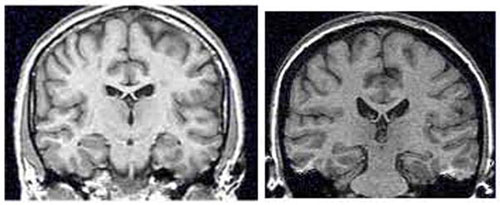Neuroimaging study provides new insights into how trauma changes the brain
Neuroscientists have made a new discovery regarding the brain activity associated with post-traumatic stress disorder (PTSD) among women with substance abuse disorders. The findings, which have been published in the journal NeuroImage: Clinical, offer some new details on how brain functioning is altered by traumatic experiences.

“This fMRI study was part of a parent clinical trial whose substance abuse intervention approach was sensitive to the fact that women enter treatment with more complex medical comorbidities compared to men, including due to interpersonal and sexual trauma,” said study author Tasha Poppa, a PhD candidate at the University of Southern California.
“Trauma in women was already an important theme in the parent study from the beginning. As a cognitive neuroscientist, I was surprised to discover that despite the vast numbers of studies on substance abuse and post-traumatic stress as separate phenomena, the functional neuroimaging literature has pretty much ignored important clinical facts illustrating that these disorders are interlinked at many levels.”
“It was clear that PTSD-substance abuse comorbidity in women was uncharted territory with potential implications for understanding psychopathology as well as treatment. So, it was important to find out whether variation in brain function in a substance dependent female population depended on traumatic stress,” Poppa said.
The researchers analyzed the brain activity of 43 women who had recently been admitted to a substance abuse program. Fourteen of these women had received a PTSD diagnosis.
During the brain scan, the participants alternated between turning their attention toward the sensation of breathing and focusing their attention on an external target. Attention was of particular interest because the substance abuse program was based on mindfulness meditation practices.
Poppa and her colleagues observed reduced connectivity in a brain network related to attention in women with PTSD compared to those without PTSD. In particular, women with PTSD displayed reduced functional connectivity between the orbitofrontal cortex and the precuneus, mid-posterior insula, lateral prefrontal cortex, and angular gyrus.
Regardless of PTSD diagnoses, exposure to sexual violence was independently associated with similar reductions in connectivity in this brain network as well.
The results indicate that women with PTSD and substance abuse disorders “may have more difficulties engaging the interoceptive and attentional resources that may support emotional regulation in the context of mindfulness practices,” the researchers said.
“These findings add to a body of evidence that trauma lastingly changes how our brains function. Also, given the high co-occurrence of trauma and substance abuse disorders, understanding these brain changes may have a role in improving treatment outcomes,” Poppa told PsyPost.
All research includes some limitations, and the current study is no exception. “We were working with a pretty limited sample size,” Poppa noted.
“Since this is the first study to look at the question of PTSD comorbidity in a female substance abusing population, it is important to replicate findings in larger studies.”
“A related caveat on reproducibility is that the findings emerge in the context of a particular behavioral task in which participants are asked to attend to bodily sensations associated with breathing, so it is not clear if these brain patterns would emerge in other task or ‘task-free’ contexts,” Poppa explained.
The study, “Sexual trauma history is associated with reduced orbitofrontal network strength in substance-dependent women”, was authored by Tasha Poppa, Vita Droutman, Hortensia Amaro, David Black, Inna Arnaudova, and John Monterosso.
yogaesoteric
November 7, 2019
